Search Results
Showing results 1 to 20 of 85

Clean Water: Is It Drinkable?
Source Institutions
In this activity, learners simulate nature's water filtration system by devising a system that will filter out both visible and invisible pollutants from water.

Home Water Audit
Source Institutions
This activity offers learners and their families several ways to raise their awareness together about home water.

Low-Tech Water Filter for High-Impact Clean
Source Institutions
In this activity, learners consider the water features they might enjoy at a community park--a pond, brook, water playground (or "sprayground"), or pool--and what happens to the water over time.

Water Tower Challenge
Source Institutions
In this activity, learners explore how engineers work to solve the challenges of a society, such as delivering safe drinking water.

Who Dirtied The Water?
Source Institutions
In this activity, learners receive a labeled plastic film canister containing a material representing a pollutant (i.e. pencil shavings = a beaver's wood chips).

Make a Wire Critter That Can Walk on Water
Source Institutions
In this activity, learners make water-walking critters using thin wire, and then test how many paper clips these critters can carry without sinking.
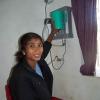
Straining Out the Dirt
Learners take on the role of environmental engineers as they design water filters.

Filtration Investigation
Source Institutions
In this activity, learners explore how engineering has developed various means to remove impurities from water.
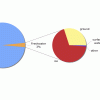
Earth's Water: A Drop in Your Cup
Source Institutions
This creative lesson plan provides a visual way for learners to gain knowledge about the finite amount of fresh water on Earth and encourages the discussion of the various ways to conserve this resour

Earth's Water: A Drop in Your Cup
Source Institutions
This creative lesson plan provides a visual way for learners to gain knowledge about the finite amount of fresh water on Earth and encourages the discussion of the various ways to conserve this resour

Foam Tower
Source Institutions
In this activity (page 1 of the PDF under SciGirls Activity: Water Slides), learners will whip up some suds with a cup of water and a tablespoon of dish soap until the bubbles are stiff enough to star
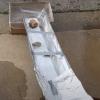
Build An Aqueduct
Source Institutions
In this activity, learners use the design thinking process to design and build their own aqueduct, or water bridge.
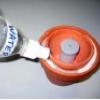
Cool It!
Source Institutions
Learners make a refrigerator that works without electricity. The pot-in-pot refrigerator works by evaporation: a layer of sand is placed between two terra cotta pots and thoroughly soaked with water.
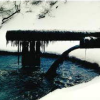
How Did That Get There?: Water Pollution
Source Institutions
As a group, learners consider sources of water pollution to understand where pollution starts and where it ends up.

Water Clean-up
Source Institutions
This is an activity (located on page 3 of the PDF under Water Clean-up Activity) about the use of reduction agents to decontaminate ground water.
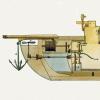
Design a Submarine
Source Institutions
Learners act as engineers and design mini submarines that move in the water like real submarines.
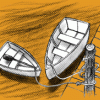
Watercraft
Source Institutions
In this design challenge activity, learners build a boat that can hold 25 pennies (or 15 one inch metal washers) for at least ten seconds before sinking.
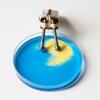
Indicating Electrolysis
Source Institutions
Electrolysis is the breakdown of water into hydrogen and oxygen. This Exploratorium activity allows learners to visualize the process with an acid-based indicator.
Ships Ahoy!
Source Institutions
Design a vessel that tests the limits of wind power given a set of off the shelf and recycled materials.

Super Soaking Materials
Source Institutions
In this activity, learners will test cups full of potting soil, sand, and sphagnum moss to see which earth material is able to soak up the most water.
